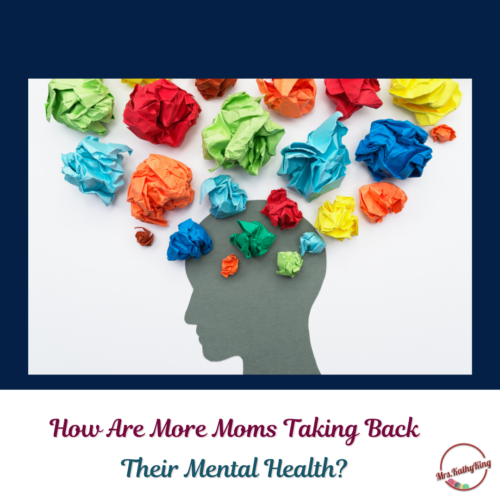Motherhood is an all-consuming job. Between the sleepless nights, the constant worrying, and the endless to-do lists, it’s no surprise that anxiety is a common struggle for moms everywhere. The pressure to do it all—and do it perfectly—can leave even the most capable mothers feeling overwhelmed. But more moms are refusing to accept anxiety as just part of the job. Instead, they’re finding real solutions, making mental health a priority, and taking back control of their well-being. Here’s what’s making a difference.

Ask for Help
The idea that moms have to handle everything on their own is outdated and harmful. Asking for help isn’t a weakness—it’s one of the strongest things a mother can do. More women are realizing that struggling in silence isn’t the answer and that seeking professional support can be life-changing.
Now more than ever before, parenting mental health is seen as just as important as physical health. Therapy, support groups, and mental health resources are becoming more accessible, making it easier for moms to get the help they need without shame or guilt.
Whether it’s talking to a therapist, joining a parenting group, or confiding in close friends, opening up about mental health struggles allows moms to break free from isolation. It also sets a powerful example for kids—showing them that it’s okay to ask for help when life feels overwhelming.
Natural Remedies to Help Ease Anxious Feelings
For moms looking to ease anxiety naturally, plant-based remedies are gaining traction. More people are turning to tinctures—herbal extracts that can be taken in small doses—to help manage stress and promote relaxation.
There’s growing interest in the differences between CBC vs CBG as potential tools for anxiety relief. Each of them interact with the body differently. While CBC has been studied for its potential mood-boosting benefits, CBG is often praised for its calming effects. Other natural tinctures, such as passionflower and valerian root, are also known for their ability to support relaxation without drowsiness.
Tinctures are simple to incorporate into a daily routine, whether added to tea, water, or taken on their own. More moms are seeing them as a simple, natural way to take the edge off stressful days—helping them stay present and balanced without relying on synthetic solutions.
EMDR Helps Moms Break Free From Anxiety
Anxiety doesn’t always start in adulthood. For many moms, stress is deeply connected to past experiences, and unresolved trauma can make parenting even more overwhelming. That’s where EMDR therapy is making a huge difference.
Eye Movement Desensitization and Reprocessing helps people process past trauma in a way that reduces its emotional grip. Instead of reliving painful experiences, EMDR allows the brain to reframe them, making them feel less intense over time. Moms who have gone through difficult childhoods, stressful pregnancies, or traumatic births are finding that EMDR helps them let go of past pain so they can focus on the present.
This approach is particularly helpful for moms who experience intrusive thoughts, panic attacks, or overwhelming guilt. By rewiring how the brain processes past stress, EMDR helps mothers feel lighter, more in control, and better equipped to handle daily challenges.
More Moms Learning to Say No
People-pleasing is a hard habit to break—especially for moms who feel like they have to be everything to everyone. But more women are realizing that saying yes to everything is an easy way to burnout. Setting boundaries and learning to say no is one of the most powerful ways to reduce anxiety.
Saying no doesn’t mean being selfish. It means protecting mental health, prioritizing energy, and making space for what truly matters. Whether it’s declining extra commitments, delegating responsibilities, or setting limits with family and friends, more moms are standing firm in their need for balance. The result? Less resentment, fewer feelings of overwhelm, and more time for what actually brings joy.
Healing Childhood Trauma Reduces Anxiety in Motherhood
Motherhood has a way of bringing childhood wounds to the surface. Many moms find themselves triggered by their kids’ behavior in ways they never expected—whether it’s feeling overly reactive, struggling with patience, or carrying deep fears about not being “good enough.” That’s because parenting often reopens unresolved wounds from the past.
The good news? More moms are recognizing this pattern and choosing to do the healing work. Whether through therapy, journaling, or mindfulness practices, breaking the cycle of childhood trauma helps moms parent with greater confidence and less anxiety.
Leave a Reply